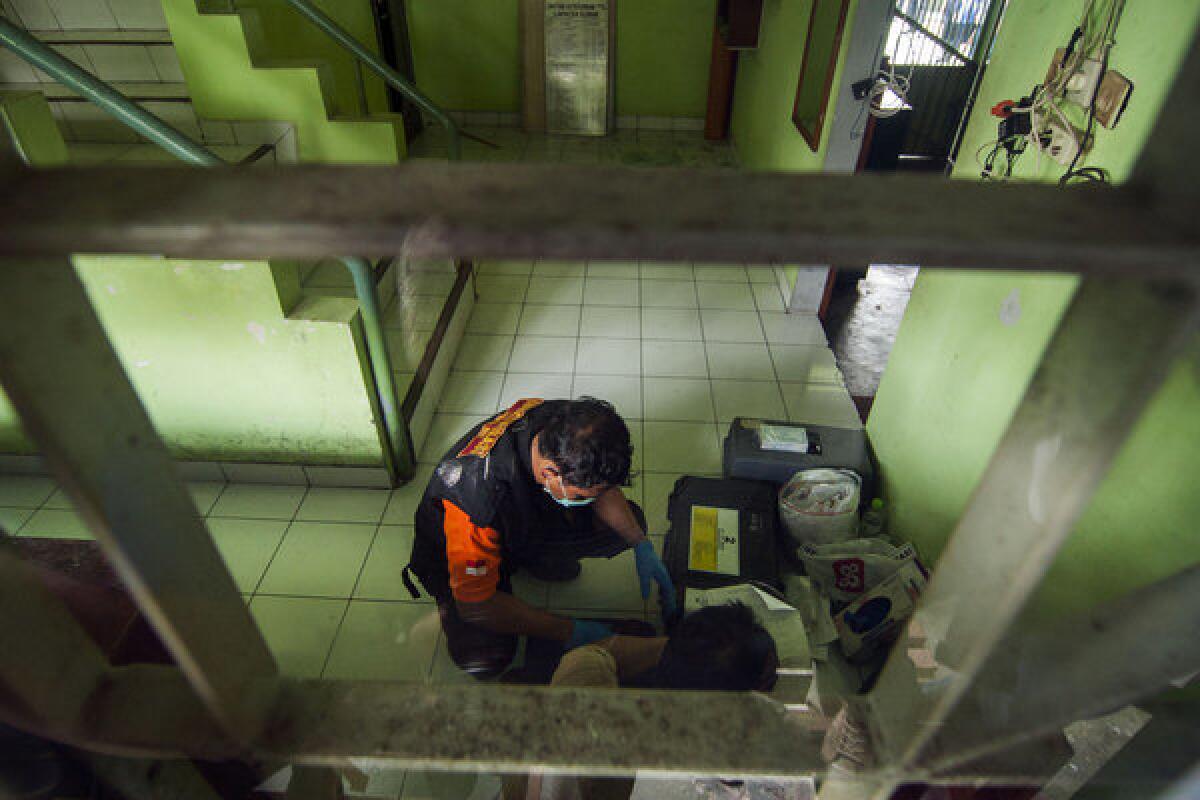Inquiry finds Indonesia military unit was behind prison killings

- Share via
Eleven members of an elite Indonesian military unit were behind the slayings of four detainees at the Cebongan prison last month, military investigators told reporters this week.
Brig. Gen. Unggul K. Yudhoyono said the prison killings were a revenge attack after a member of Kopassus, a military unit that conducts special operations, was fatally stabbed at a cafe, Indonesian media reported. The slain men had been arrested after his death.
Masked gunmen stormed into the prison March 23 and fatally shot the four suspects. Among the Kopassus members, “one of them acted as the executor and eight others as supporters, while two others had sought to prevent their killing,” Unggul said, according to Antara News. The raid “was done in response to the attack by the thugs on their colleagues.”
Suspicion had swirled around Kopassus since the prison killings nearly two weeks ago. Human rights groups have repeatedly accused the military unit of torture, slayings and other abuses dating to the 1990s.
“The attack was well organized, planned and committed by trained individuals with a professional knowledge of weapons,” a coalition of civil society groups said in a statement after the killings, citing “the systematic, quick and tactical nature of the attack” and “the use of high-powered weapons.”
Indonesia has been criticized for failing to bring offenders in the military to justice. Last week, however, an army official said there were signs of soldiers being involved in the prison attack. Some activists were surprised when military investigators announced their conclusions Thursday.
After the findings were announced, President Susilo Bambang Yudhoyono condemned the killings and said the state did not condone “street justice.”
“It was said the attack happened … because a group of thugs brutally murdered a member of Kopassus,” the president said Friday, according to the Jakarta Globe. “But brutality in any form cannot be justified.”
Activists are now pushing for the accused Kopassus members to go before civilian courts instead of facing military trials, which are widely seen as more lenient.
ALSO:
Pope wants church to ‘act decisively’ on abuse
U.S. and Japan unveil plan for returning Okinawa land
Fidel Castro urges North Korea to avoid nuclear warfare
More to Read
Sign up for Essential California
The most important California stories and recommendations in your inbox every morning.
You may occasionally receive promotional content from the Los Angeles Times.








